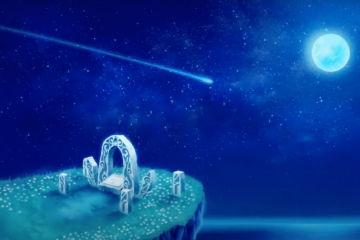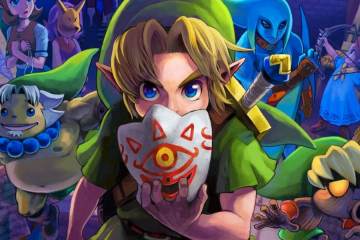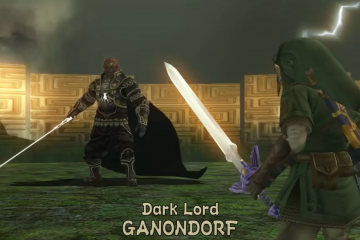Regular visitors of With a Terrible Fate may recall that, last February, I delivered a speech as part of the Lowell House Speech Series at Harvard University. In it, I discussed my decision to pursue the study of video game philosophy instead of medicine. This year, on 1.26.16, I delivered another speech as part of that same Speech Series; in it, I discuss why video games are worth playing and studying at any age.
I offer the transcript below, in full:
What are video games good for? I study the stories of video games, so I worry about that question a lot. I want to share one way I think the special stories of video games, and the way we engage them, teach gamers to learn from one another.
We often try to communicate with one another by referencing our experiences. We argue about aspects of society that offend us; we talk about aspects of our identities that other people lack direct knowledge of – if you are a woman and feel that your employer treats female employees worse than men, you might want me to understand what that is like, although I am a man. We want to convey to others what it is like to be us – but how can we, when others have no way of standing in our shoes?
Video games can help us share who we are. Let me explain why.
When I was in high school, I played a little-known video game called “Nier.” The game tells the story of a man, Nier, who will stop at nothing to save his daughter, Yonah, from a deadly plague. The emotional depth and complexity of this game were what first motivated me to study and analyze video games in school. If you haven’t yet, you owe it to yourself to play it some day.
At the same time that I dove into analyzing Nier, I also felt compelled to share the game with two of my closest high school friends, Dan and Nate. Just as I wanted everyone I knew to read The Catcher in the Rye after I first encountered the classic in middle school, I now wanted Dan and Nate to experience this game. One after the other, I passed my copy of the game along to Dan and then Nate in the hall between classes.
But when I spoke with them both after they handed the game back to me, I discovered something I hadn’t expected: although they had played the same game as I had, we each made different choices in the game—something that couldn’t have happened if we’d all seen the same movie or read the same book. I had focused on exploring the secrets of the game’s world, digging through virtual basements for classified government records to learn what had caused the apocalypse. Dan focused instead on exploring the relationship between Nier—the player’s character—and Yonah. He completed quests collecting food for Yonah, and she surprised him by making him a cake to thank him. Nate found the desolate wasteland of the game depressing, so he completed it once and moved on.
As I discussed Nier with my friends over lunches and in between classes, I learned about my friends and myself through the choices that we each made. We talked about how a single story prompted us to act differently from one another, and we accounted for our actions. Through these conversations, I learned how much Dan valued the intimacy fathers share with their daughters; I learned that Nate wanted to be excited about the environments of video game worlds, so that he could jump at the opportunity to explore them. Through these conversations, I began to articulate to my friends my desire to unravel mysteries.
Video games allow players to share their experiences with one another by grounding them in a common story. Games invite players to enter a single world, chart their own course through it, and compare their journeys with their friends. By giving us a special position in an artistic world, our choices become part of the work of art—something we can discuss and make meaning out of with others.
When I think about video games’ practical value, I always reflect on the degree to which they can unify people and allow them to understand and share their way of being. This invitation to share ourselves with others is the hidden utility of the engaging, epic stories waiting in the many worlds of video games.
But be warned, it can take a lot of work to get to know someone else—so you may just need to spend many hours playing video games.




2 Comments
Ben Hur · February 6, 2023 at 4:54 pm
Hello, i came across this website while searching online for themes and philosophy in FF IX (article of Necron). Just wanna say you guys did a wonderful work here! It’s nice to read so many interesting insights about games that were part of my history! And this article, in particular, summarize why i Will always stand by The idea that videogames can be art! Thanks by
Aaron Suduiko · February 8, 2023 at 1:39 pm
Thank you for your kind words, Ben! We strive to offer a different standard of video-game-story studies here, and I’m so glad that our work resonates with your history and passion. I hope that you’ll continue to follow our work, and that you’ll share it with like-minded gamers!